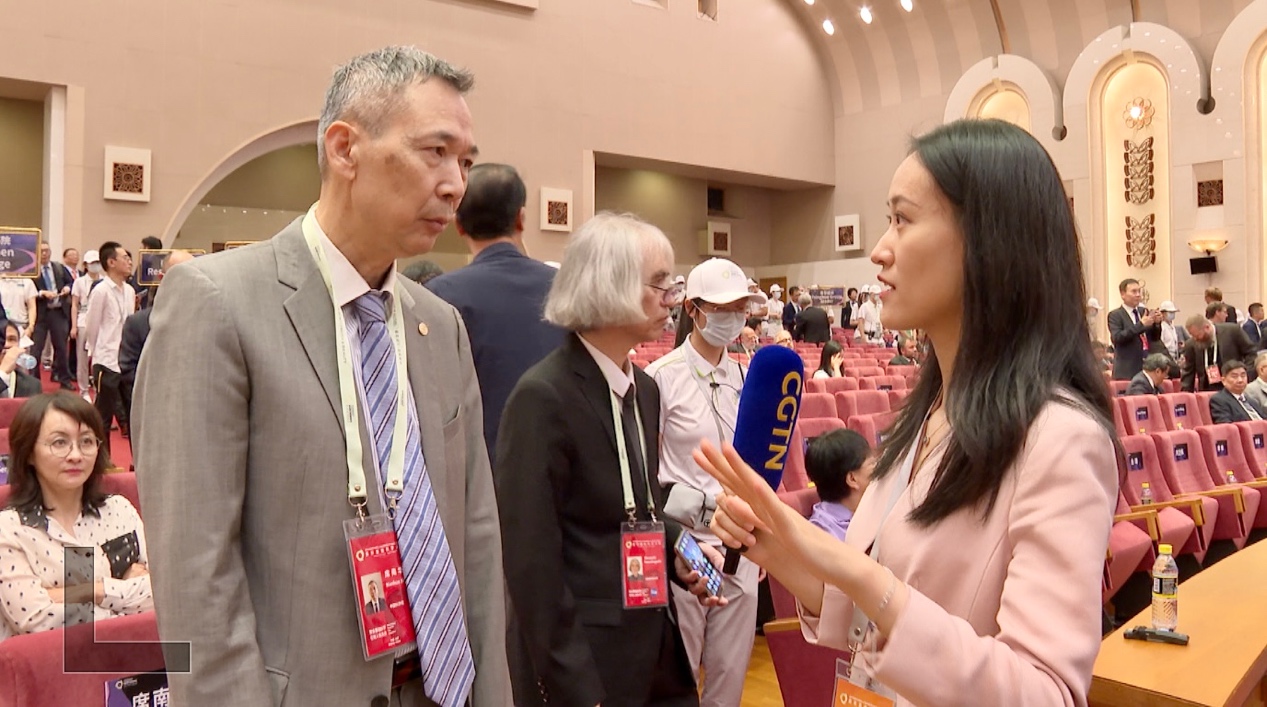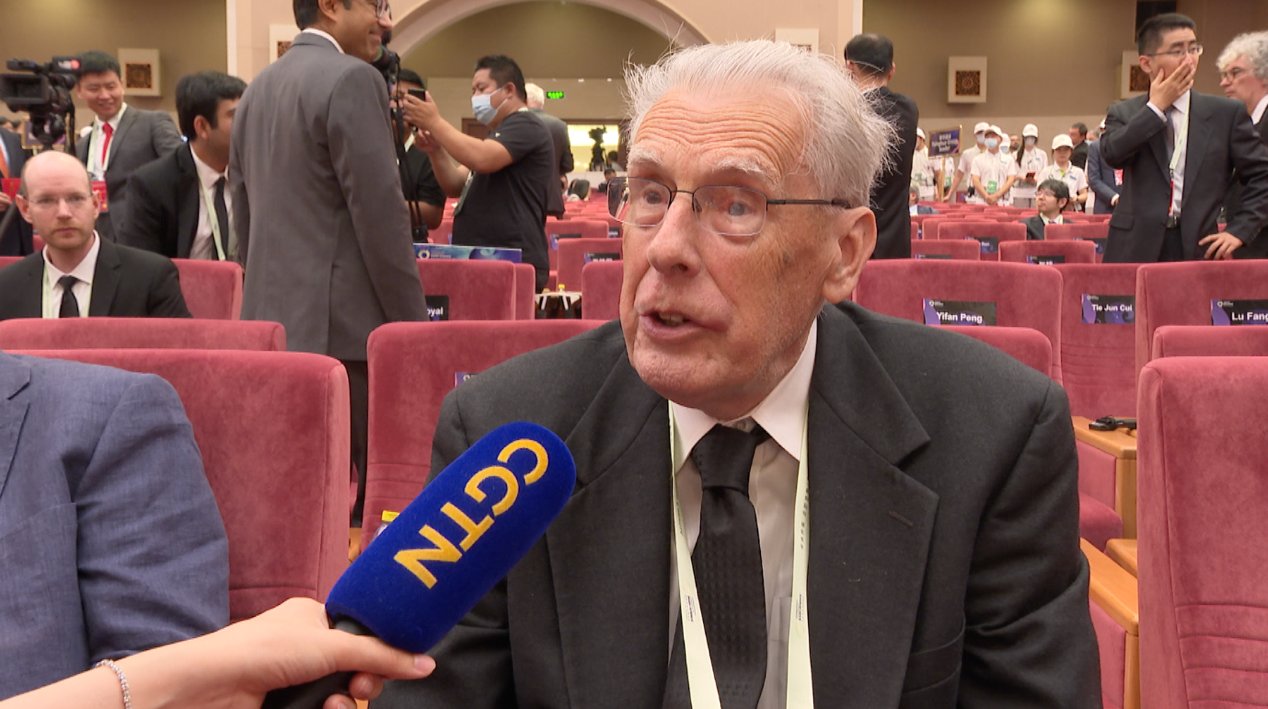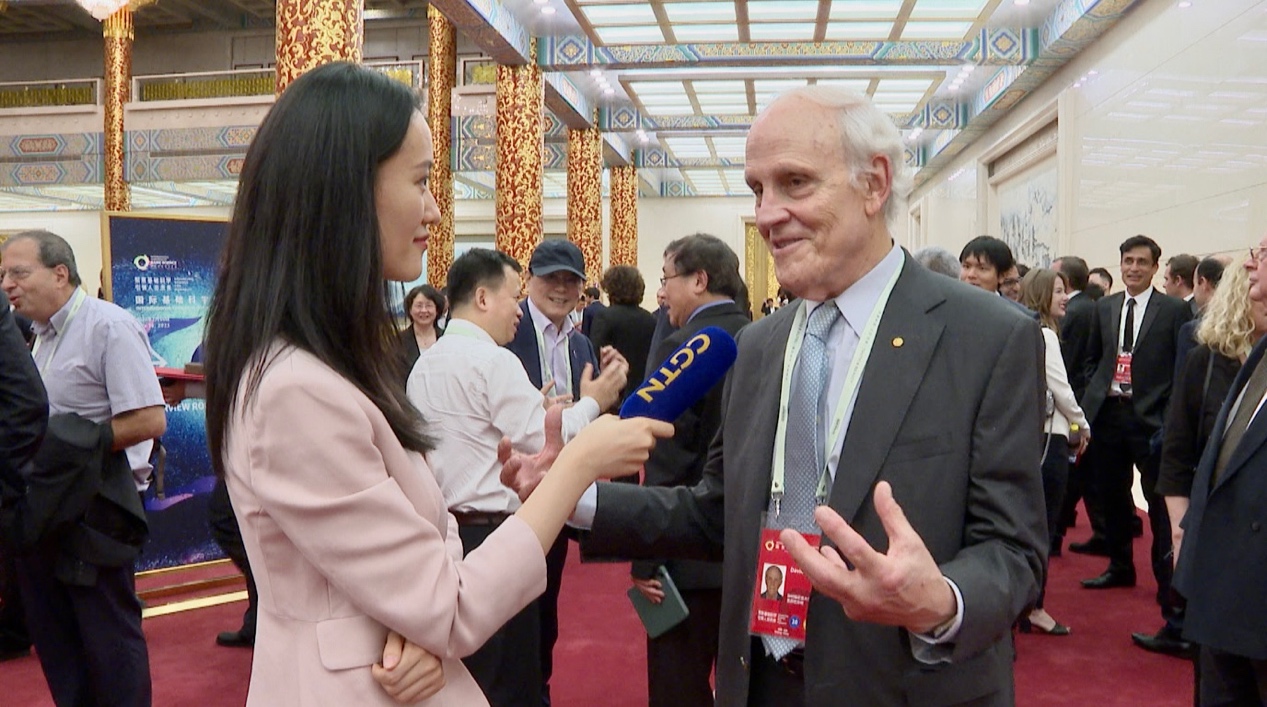03:27

Some of the world's leading mathematicians, physicists and computer scientists are gathering in Beijing Sunday for the inaugural International Congress of Basic Science (ICBS).
The event runs for a fortnight and brings together leading experts from multiple fields, with the goal of promoting cooperation and exchange.
Running until July 28, three branches of experts are gathering to discuss, collaborate and explore cutting-edge issues across mathematics, theoretical physics, theoretical computing and the information sciences.
'Decoupling difficult in all respects'
Many top scientists attending the congress hold multinational academic titles.
Some said science has granted them the freedom to travel the world. This reaffirms the truth that "science knows no borders."
While Western politicians are busy with the rhetoric of "decoupling" or "de-risking," scientists express their willingness to break through barriers and foster a realm of pure cooperation.

Xi Nanhua (left), academician of Chinese Academy of Sciences, speaks with CGTN on international cooperation and science education at the Great Hall of the People in Beijing, July 16, 2023. /CGTN
Xi Nanhua (left), academician of Chinese Academy of Sciences, speaks with CGTN on international cooperation and science education at the Great Hall of the People in Beijing, July 16, 2023. /CGTN
"Today, decoupling is difficult in all respects, and it's not something that is in line with the trend of the times," said Xi Nanhua, an academician of the Chinese Academy of Sciences. "It will have an impact, but it shouldn't be overstated, nor should it be placed in a prominent position in our minds."
"Politics can be complicated, but scientists should cooperate and do science together," said Russian mathematical physicist Nicolai Reshetikhin, a professor of mathematics at the Tsinghua University and one of the founders of quantum group theory.
'Talent is what makes nations strong in the future'

John Hopcroft, professor emeritus in computer science at Cornell University, speaks with CGTN on science education at the Great Hall of the People in Beijing, July 16, 2023. / CGTN
John Hopcroft, professor emeritus in computer science at Cornell University, speaks with CGTN on science education at the Great Hall of the People in Beijing, July 16, 2023. / CGTN
The event holds even greater significance in exposing young people to the world's highest level and setting clear goals.
"One of the things your top level government understands is that in the past what makes nations great was oil, gold, or agriculture," said John Hopcroft, professor emeritus in computer science at Cornell University. "They believe that in the future, it's going to be talent. And they are focused on improving education."
"You should be really happy with what your government is doing. They are trying every way possible to improve education," he said.
Why is basic science important?

Nobel laureate David Jonathan Gross speaks with CGTN on why learning basic science is important at the Great Hall of the People in Beijing, July 16, 2023. /CGTN
Nobel laureate David Jonathan Gross speaks with CGTN on why learning basic science is important at the Great Hall of the People in Beijing, July 16, 2023. /CGTN
"Basic science is the very foundation of human knowledge," Fields Medal laureate Shing-Tung Yau said in his keynote speech of the opening ceremony.
"It's an important way for us to understand the world and nature, explore the universe and drive scientific and technological progress," said Yau.
"We evolve to try to understand nature. So we no longer have to live in trees, and die at the age of 20," said Nobel Prize Laureate David Jonathan Gross.
An integral part of the congress is recognizing the outstanding achievements within the scientific community. The Basic Science Lifetime Award honors individuals who have made significant contributions over the past three decades.
This year, it's been given to Adi Shamir, a leading Israeli cryptographer and a recipient of the 2002 Turing Award, and David Mumford, an internationally renowned mathematician known for his research in algebraic geometry, computer vision and pattern theory research.
Over 100 academic papers have won the Frontiers of Science Award for their cutting-edge research.